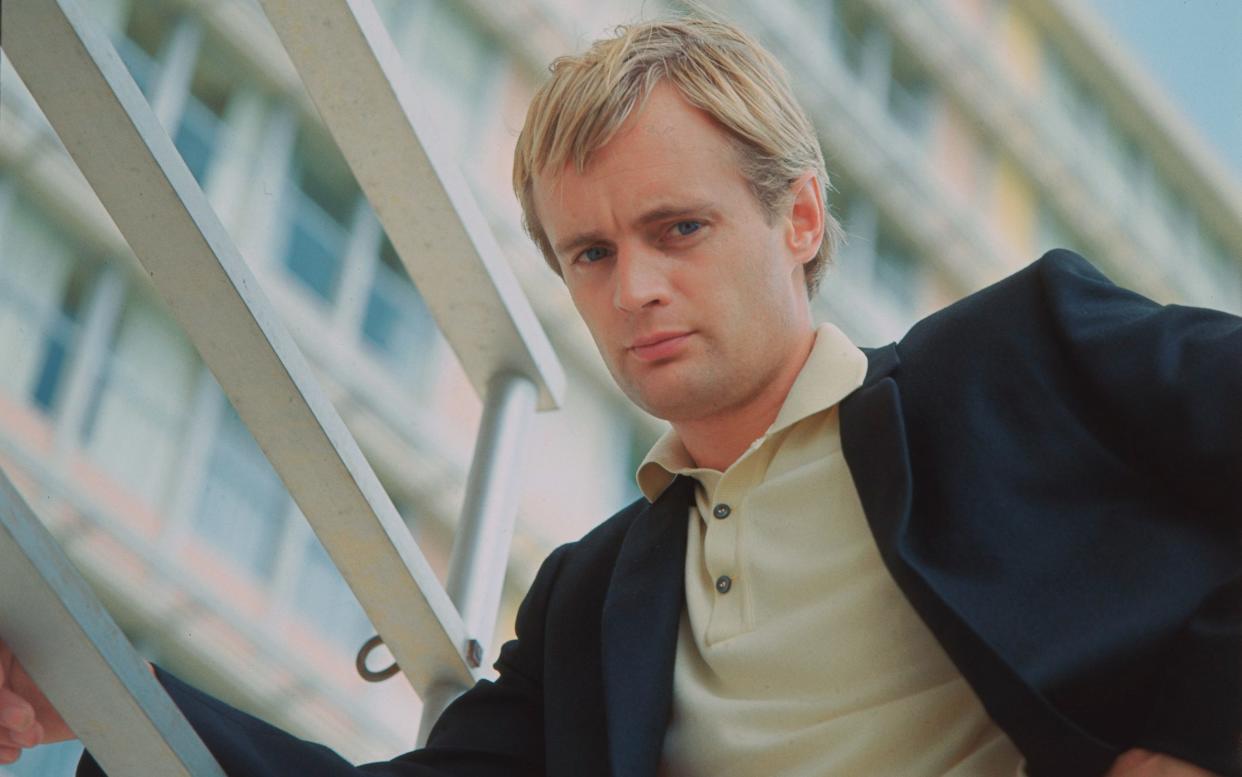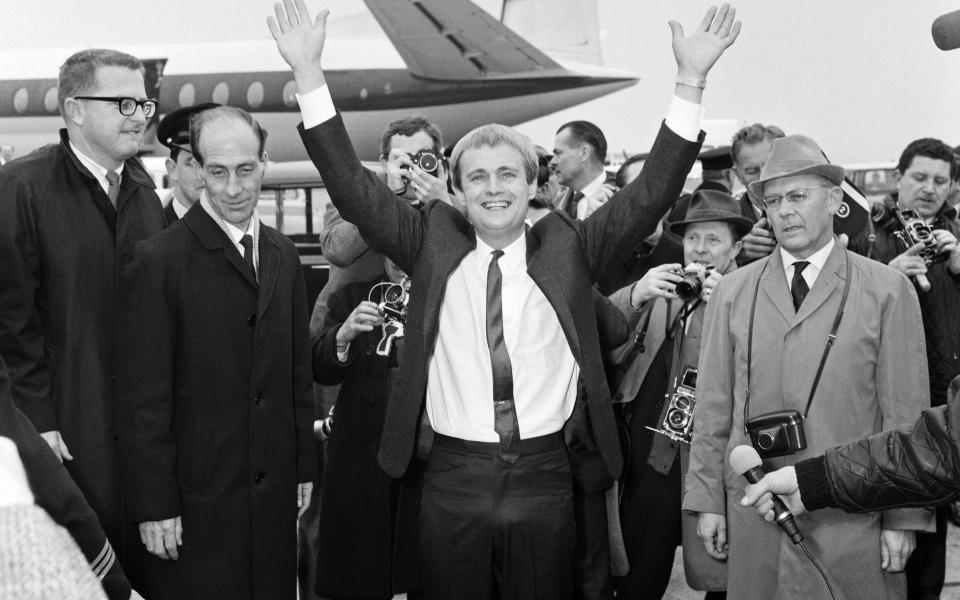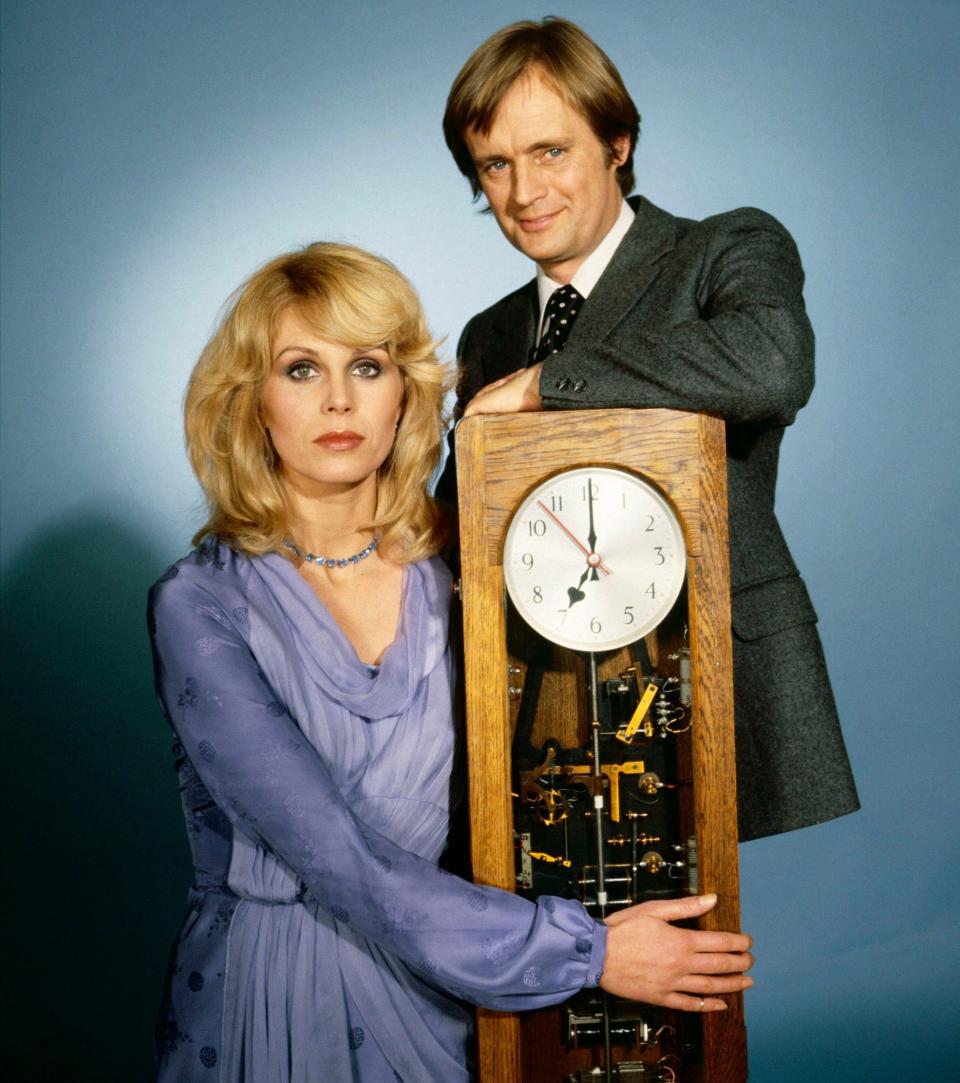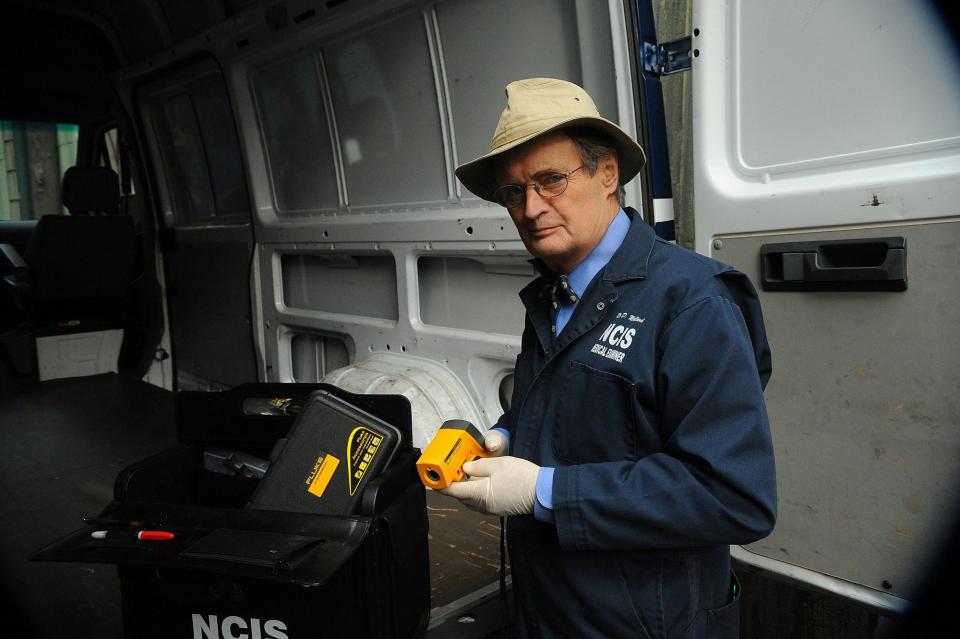David McCallum, suave Scottish actor who won wide fame for The Man from U.N.C.L.E. and NCIS – obituary

David McCallum, who has died a few days after his 90th birthday, was a Scottish-born actor best known for playing the ultra-cool, enigmatic Russian Illya Kuryakin in the high-camp secret agent television series The Man from U.N.C.L.E., and more recently endeared himself to a new audience as Dr Donald “Ducky” Mallard in the long-running CBS television crime series NCIS.
More than 100 episodes of The Man from U.N.C.L.E. were made for NBC between 1964 and 1968, with McCallum cast as the introspective, sullen, diminutive sidekick to the urbane, dark-haired American Napoleon Solo, played by Robert Vaughn.
Originally conceived as a spoof, The Man from U.N.C.L.E. (United Network Command for Law Enforcement) made McCallum an international star. Six thousand American girls polled by one magazine voted him their favourite heart-throb, and when, in one episode, he kissed a girl on screen, 2,000 more at one American college threatened to blow up the television studio.
The series crested the wave of interest in espionage created by the James Bond films, and the badinage, gadgetry, exotic locales and beautiful girls in the show were redolent of the Bond saga. Bond’s creator Ian Fleming was initially brought in to work on the show’s format and furnished the name of Vaughn’s character, Napoleon Solo, before withdrawing on grounds of ill-health.

Responsibility for the format passed to the screenwriter Sam Rolfe, who drew inspiration from the Alfred Hitchcock thriller North by North-West (1959), in which an innocent bystander is involuntarily caught up in the intricacies of international espionage. This became a recurring theme in the U.N.C.L.E. series, which emerged on television as the American equivalent of The Avengers in the UK, a combination of fast-paced action, tongue-in-cheek humour and appealing quirkiness.
Key to the show’s success was the relationship between the two stars, both 1960s archetypes: Robert Vaughn as the nattily suited, devil-may-care, all-American agent and urbane swinger, and McCallum as his Russian partner, who with his black turtle-neck sweaters and blond semi-Beatle hairstyle was the classic intellectual loner, the quintessence of “cool”. The third figure was Alexander Waverly, an avuncular Englishman played with dry, donnish wit by the veteran actor Leo G Carroll.

Viewers relished the show’s multitude of gimmicks. Agents entered U.N.C.L.E.’s headquarters through the fitting room of a tailor shop. Neither Kuryakin nor Solo went into action without their agents’ gadgets, notably their ballpoint-pen “communicators” activated by the instruction “Open Channel D”. Unusually, each episode was divided into four “acts”, transitions being denoted by rapid camera pans.
Such was McCallum’s popularity in the show that the studio capitalised on it by encouraging him to record a series of easy listening albums with the jazz producer David Axelrod. He recalled: “I just did what they wanted. I wrote the orchestrations, conducted the band, made the recordings and had a wonderful time.”

Having vanished from view when The Man from U.N.C.L.E. ended in 1968, McCallum reappeared in 1972 to star with Robert Wagner in the BBC Television series Colditz. In 1979 he starred with Joanna Lumley as the cold and humourless agent Steel in ITV’s Sapphire and Steel.
McCallum returned to British television screens with Diana Rigg to star in the 1989 BBC four-part mini-series Mother Love. In 1991 he was cast as the professional gambler John Grey in Trainer, the BBC’s horse-racing series devised by Gerald Glaister, the producer behind Dr Finlay’s Casebook, Colditz and Howards’ Way.
He was still working in 2003 when, at the age of 70, he was cast as Dr Donald “Ducky” Mallard, the bowtie-wearing medical examiner in a new CBS police procedural series called NCIS. Featuring the undercover work of the US Naval Criminal Investigation Service, the show is still running 20 years later and McCallum’s “Ducky”, an immediate hit with viewers, made his final screen appearance in the last episode of the 20th season, broadcast in the US in May and on UK streaming channels.
The younger of two brothers, David Keith McCallum was born on September 19 1933 in the Kelvinside district of Glasgow. His parents were both musicians, his mother a cellist and his father, also David, first violinist with the Scottish, the London Philharmonic and the Royal Philharmonic Orchestras. The family moved to Hampstead, north-west London, when his father became leader of the London Philharmonic.

Evacuated to wartime Scotland, he grew up at a house in Gartocharn by Loch Lomond, eventually returning to London where, aged 10, he won a scholarship to University College School in Hampstead.
As a child he would accompany his father to the recording studios where Jascha Heifetz, the violinist, was recording Brahms. David remembered Heifetz handing him a broken G string as a keepsake. Taught by his mother to play the oboe, he joined the school orchestra and gave the occasional recital. But it was his involvement in amateur dramatics that propelled him towards a career in the theatre.
David worked behind the scenes as well as on stage, apprenticing himself to the local electrician in order to make himself more useful backstage. By 1946, when he was 12, he was supplying boy voices to the BBC radio repertory company, which qualified him for an Equity union card.
Leaving school at 18, McCallum worked as an assistant stage manager at Glyndebourne and undertook National Service with the Royal West African Frontier Force before enrolling at Rada, where Joan Collins was a fellow student. On qualifying he started in repertory theatre at Frinton-on-Sea in Essex.
A photograph of McCallum looking like James Dean caught the attention of the Rank Organisation, who signed him in 1956. His early film roles included a juvenile delinquent in Violent Playground (1957), and as junior RMS Titanic radio operator Harold Bride in A Night to Remember (1958).
McCallum originally went to Hollywood in 1962 to play Judas Iscariot in the epic film The Greatest Story Ever Told (1965), but his first American film to be released was Freud (1962), directed by John Huston. The following year McCallum played Lt Cdr Eric Ashley-Pitt (“Dispersal”) in The Great Escape.

When filming finished, he knocked on studio doors looking for work. Offered the Illya Kuryakin role in The Man from U.N.C.L.E., McCallum found it was a minor one, as stooge to the series hero Napoleon Solo, with all of two lines in the pilot show.
But as McCallum built Kuryakin into a complex character whose appeal turned largely on his shadowy and enigmatic qualities, the Russian’s popularity and McCallum’s on-screen chemistry with Robert Vaughn elevated him not only to co-star status but also that of a pop-culture phenomenon. During the show’s four-year run – it was shown in Britain on BBC One between 1965 and 1968 — he was twice nominated for an Emmy award.
In the mid-1960s, McCallum and Vaughn starred in a handful of Man from U.N.C.L.E. spin-off feature films, including One of Our Spies Is Missing (1966) and The Karate Killers (1967). The pair were reunited in a nostalgic television movie The Return of the Man from U.N.C.L.E. in 1983. The original television series also resurfaced in the US, with selected episodes being screened in ITV regions in Britain.

McCallum was steadily in demand in the US, starring in the short-lived science fiction series The Invisible Man in 1975, and through the 1980s he popped up as guest star in numerous prime-time shows including Hart to Hart, Murder She Wrote and Matlock.
In 1991 McCallum made his West End musical debut as Lewis Carroll in The Hunting of the Snark (Prince Edward Theatre), but the show closed after only seven weeks.
McCallum enjoyed his role in NCIS, attended real post-mortem procedures as part of his research, and was relaxed about the renewed attention it brought him as he walked around Manhattan. “Fans used to say ‘Hello, Illya’,” he told The Sun. “Now it’s Ducky, but I don’t mind.”
He married the actress Jill Ireland in 1957, after working with her on the film Robbery Under Arms. They had three children, but the marriage ended in divorce after 10 years and she died of cancer. Their (adopted) son, Jason, died of a drug overdose in 1989. He married secondly, in 1967, an American, Katherine Carpenter, with whom he had a son and a daughter.
David McCallum, born September 19 1933, died September 25 2023

 Yahoo News
Yahoo News 
